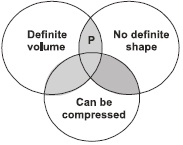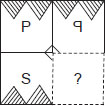Subject :NSO Class : Class 4
Subject :NSO Class : Class 4
Post Your Answer
Subject :NSO Class : Class 4
Post Your Answer
Subject :NSO Class : Class 5
Ans 1:
Class : Class 2
mr.sof we paid so much money for olympiad and we get these stupid bugs like the correct option is wrong you want us to get less marks it matters to me tho if more of these come in the future im gonna un subscribe
Ans 13:
Class : Class 8
Master Answer- The answer should be B because the alphabet is symmetrical with a diagonal at the top left corner and the diagonal lines are facing the same way . Thus, the answer should be option B.
Ans 17:
Class : Class 8
the answer is b but they are showing it as c this is an error even the solution has the wrong picture posted and they didnt even notice so i will request sof to kindly make the issue resolve
Ans 30:
Class : Class 7
The answer is B. There must be an error in the picture for the rules on "p" are not being applied on "s". This does not make sense
Ans 45:
Class : Class 8
BBBBBBBBBBBBBBBBBBBBBBBBBBBBBBBBBBBBBBBBBBBBBBBBBBBBBBBBBBBBBBBBBBBBBBBBBBBBBBBBBBBBBBBBBBBBBBBBBBBBBBBBBBBBBBBBBBBBBBBBBBBBBBBBBBBBBBBBBBBBBBBBBBBBBBBBBBBBBBBBBBBBBBBBBBBBBBBBBBBBBBBBBBBBBBBBBBBBBBBBBBBBBB
Ans 60:
Class : Class 5
This is truly unfair. How can you tell simply without any proof that C is the answer? Fix the problem or else it will create harm to the new students who are giving the test. We, the students are losing confidence too because of these types of questions. Please try to understand us also! It is ruining our whole session of olympiads.
Ans 67:
Class : Class 7
bbbbbbbbbbbbbbbbbbbbbbbbbbbbbbbbbbbbbbbbbbbbbbbbbbbbbbbbbbbbbbbbbbbbbbbbbbbbbbbbbbbbbbbbbbbbbbbbbbbbbbbbbbbbbbbbbbbbbbbbbbbbbbbbbbbbbbbbbbbbbbbbb
Ans 70:
Class : Class 7
Hello PLZZ fix this issue I always loose confident on this type of questions when my answer is correct but you say incorrect. This is so annoying
Ans 73:
Class : Class 6
The answer should be (B) because in the abpve part we see that the lines in triangle are going in same direction. I was going to give (c) by then i saw that and changed my answer and as all said some 4 years ago too it should have been fixed by now. Else give us a proper solution.
Ans 81:
Class : Class 7
Excuse me , Mr . SOF ! You want that we will do wrong in exams ? It does not matter for you , but it matters for us . We will get less marks . Just think that we are paying too much and for that we are getting wrong answers ?
Ans 84:
Class : Class 6
bbbbbbbbbbbbbbbbbbbbbbbbbbbbbbbbbbbbbbbbbbbbbbbbbbbbbbbbbbbbbbbbbbbbbbbbbbbbbbbbbbbbb
Post Your Answer
Subject :NSO Class : Class 6
Post Your Answer
Subject :NSO Class : Class 7
Post Your Answer
Subject :NSO Class : Class 7
Ans 2:
Class : Class 9
ans is a because time period = 2 pie square root of lenght by gravity's acceleration
Post Your Answer
Subject :NSO Class : Class 5
Ans 4:
Class : Class 8
It should be "old gibbous" as in 15 days "no moon" becomes "full moon". The "new crescent moon" is a stage after no moon ,so in 15 days it will become a stage after new moon which is old gibbous.
Post Your Answer
Subject :NSO Class : Class 5
Post Your Answer
Subject :NSO Class : Class 4
Ans 5:
Class : Class 7
Okay everyone, it seems to be that you guys really aren't paying any attention to the whole question.Dear friends, the question says that we have to decide the odd one out on the basis of composition(on what it is made of), not anything else.If you see it this way, Jupiter is the odd one out, not Earth,Venus or Mars, because it is the only planet made of gases, mostly hydrogen. All the other ones are rocky or terrestrial planets, made mostly of rocks and metals, molten or solid.
Ans 10:
Class : Class 6
Actually, Jupiter is the right answer. They asked us to find the odd one out in terms of composition or what they are made up of. Since Jupiter is a gas giant with mostly hydrogen and Earth,Venus and mars are rocky planets with many valuable elements, the answer is D.
Ans 13:
Class : Class 4
it can be earth venus and jupiter because earth is only where life exists venus turns anti clock wise jupiter is an outer planet and it is made up of gas
Ans 15:
Ans 18:
Class : Class 8
jk.hfrdtdtdtdtdtdtgggggggggghltirrrrrrrrrrrrrrrrrrrrrrrrrrbbbbbbbbbbbbbbbbbbbfhjhsaldghfk;lgafds this answer is incorrect.
Ans 21:
Class : Class 8
Answer is D because Jupiter is made of dust and gases while Mercury ,Venus and Earth are rocky planets.
Ans 27:
Class : Class 5
it is jupiter because it says that choose the odd one out on the basis of composition which means we have to choose the odd one out on the basis of what they are made up of as earth , venus and mars are rocky planet whereas jupiteris a gaseous planet so it is D
Ans 31:
Class : Class 4
It can Be A-only red planet, B-rotates anti-clockwise, C-only planet with life, D-largest planet and has hydrogen gas. So it could be all of them
Ans 32:
Class : Class 9
it can also be like this - Venus-Earth and Mars are inner planets and Jupiter is an outer planet.
Ans 39:
Class : Class 4
but it is d because the question says that we have to say the odd one outby its strature
Ans 41:
Class : Class 6
It can be B,C and D because Venus does not have any moon and spins anti-clockwise, Earth is the only planet we live and Jupiter because it is a gas giant and is the more than 10 moons.
Ans 42:
Class : Class 4
There are three possible correct answers out f the4 options as the answers can be B -Venus, C- Earth and D- Jupiter .
Ans 43:
Class : Class 5
only Jupiter is a gaseous planet ,which is made out of rocks . Jupiter is an outer planet , while earth, Venus and Mercury are inner planets .












